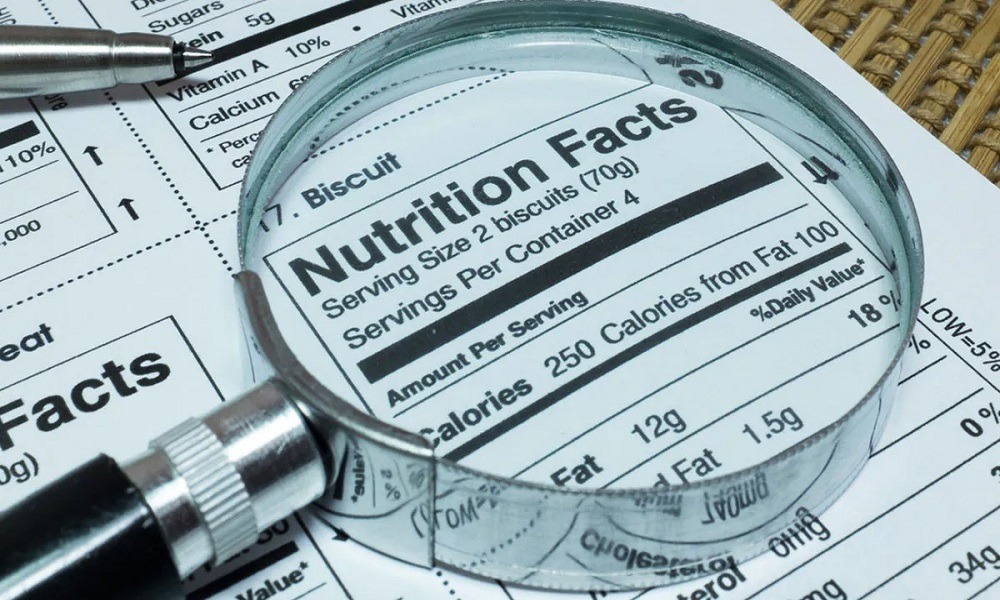In today’s fast-paced world, convenience often takes precedence over nutritional value when it comes to our food choices. Supermarket shelves are filled with products that appear healthy but can contain hidden dangers in the form of additives, preservatives, and other harmful ingredients.
Understanding food labels and ingredients is crucial for making informed choices and protecting our health.
The Importance of Reading Food Labels
Food labels are designed to provide essential information about what we are consuming. However, navigating these labels can be challenging due to complex terminology and deceptive marketing practices. Key sections to focus on include:
Ingredients List: This section lists all the ingredients in a product, in descending order of their quantity. The first few ingredients are the most significant, so if sugar, fats, or salts appear at the top, the product is likely unhealthy.
Nutritional Information: This table provides details on the nutritional content, including calories, fats, sugars, and essential vitamins and minerals. Pay attention to serving sizes, as they can be misleading.
Allergen Information: Labels must disclose common allergens like nuts, dairy, and gluten. This is crucial for individuals with food allergies or sensitivities.
Common Hidden Dangers in Food Ingredients
Added Sugars: Excessive sugar consumption is linked to obesity, diabetes, and heart disease. Sugar can be listed under various names, including high-fructose corn syrup, dextrose, and sucrose. Checking for these can help reduce sugar intake.
Artificial Trans Fats: These are used to extend the shelf life of processed foods and are found in items like margarine, baked goods, and fried foods. Trans fats are linked to increased bad cholesterol (LDL) and a higher risk of heart disease. Look for “partially hydrogenated oils” in the ingredients list.
Sodium: High sodium levels in processed foods can lead to hypertension and heart disease. Products like canned soups, snacks, and deli meats often contain high amounts of sodium. Opt for “low-sodium” or “no added salt” versions when available.
Artificial Additives: These include artificial colors, flavors, and preservatives. Certain artificial colors, like Red 40 and Yellow 5, have been linked to hyperactivity in children. Preservatives like BHA and BHT are suspected carcinogens. Choosing products with natural ingredients can minimize exposure to these additives.
Monosodium Glutamate (MSG): Commonly used as a flavor enhancer, MSG can cause adverse reactions in some people, including headaches and nausea. It’s often found in savory snacks, soups, and restaurant foods. Check for “monosodium glutamate” or E621 on labels.
Tips for Healthier Food Choices
Choose Whole Foods: Opt for whole, unprocessed foods like fruits, vegetables, whole grains, and lean proteins. These are naturally nutrient-rich and free from harmful additives.
Cook at Home: Preparing meals at home allows you to control the ingredients and avoid hidden dangers. Experiment with herbs and spices to enhance flavors naturally.
Be Wary of Health Claims: Terms like “natural,” “organic,” and “low-fat” can be misleading. Always read the full ingredients list and nutritional information rather than relying solely on front-of-package claims.
Understand Food Labels: Take the time to learn about common food additives and their potential health impacts. Resources like the Environmental Working Group (EWG) provide valuable information on food safety. Understanding food labels and ingredients is crucial for making healthier choices.
Shop Smart: Look for products with short ingredient lists and recognizable ingredients. Shopping at farmers’ markets or choosing organic options can also reduce exposure to harmful substances.
CONCLUSION:
Understanding food labels and ingredients is essential for making healthier food choices and avoiding hidden dangers in everyday foods. By being informed and vigilant, we can protect our health and well-being.
At Fikrah, we are committed to raising awareness about food safety and promoting healthier, more informed eating habits for individuals and families.
Click here to know more about “Unveiling the Hidden Risks of Processed Food Consumption”

